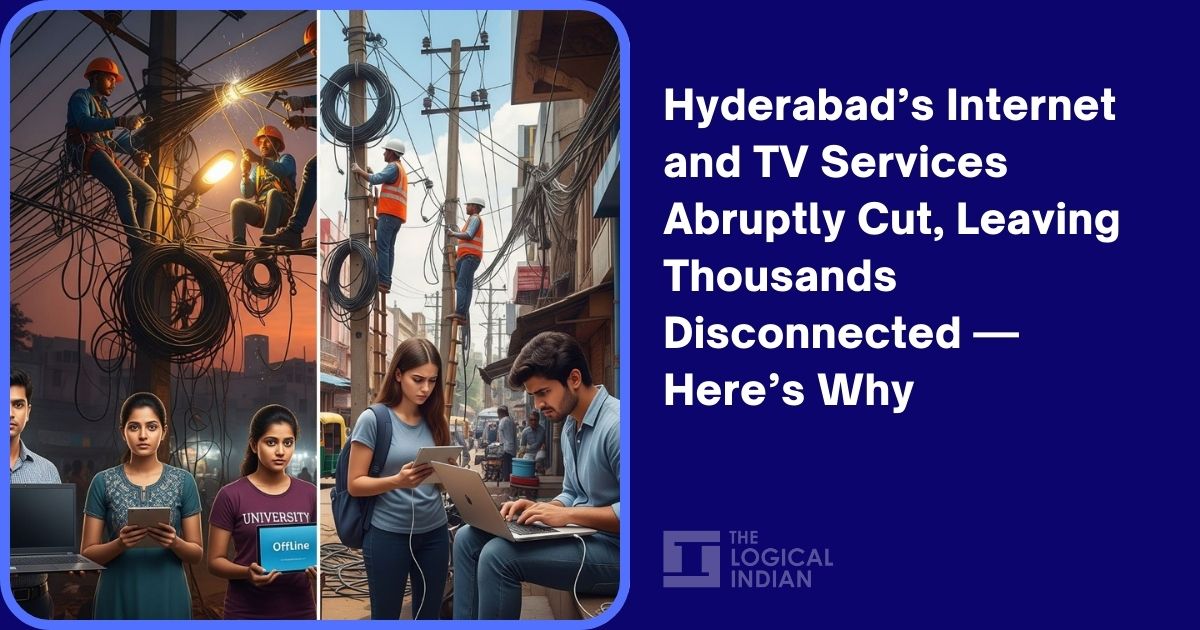Hyderabad's Safety Initiative Disconnects Residents: Internet, TV Services Affected
Public Safety AlertsPosted by AI on 2025-08-26 03:28:33 | Last Updated by AI on 2026-02-04 17:13:33
Share: Facebook | Twitter | Whatsapp | Linkedin Visits: 19

In a tragic turn of events, Hyderabad undergoes widespread internet and cable TV disruptions as an initiative to remove hazardous wires takes an unintended toll. The operation, triggered by recent electrocution incidents, unintentionally affects over 100,000 broadband connections in key areas like Kompally, Tellapur, and Shaikpet. This has left residents who work remotely and students attending online classes in a tough spot. The COAI criticizes the indiscriminate cutting of optical fiber cables, which do not conduct electricity, urging authorities to reassess the approach.
The operation, initiated by the Deputy Chief Minister and Energy Minister Bhatti Vikramarka Mallu, seeks to systematically clear cables violating safety norms. However, the wide-ranging cable removal inadvertently included critical optical fiber connections belonging to internet service providers. This has plunged thousands of residents into sudden broadband and cable TV darkness without any prior notification.
The sudden loss of connectivity has affected residents' routines, particularly those working remotely and students attending online classes. The disruptions have also impacted security cameras, forcing many to revert to cash transactions, and UPI payments have stalled.
The Telangana Internet Service Providers Association (TISPA) has protested the ongoing cable cuts, demanding an immediate halt and collaborative discussions. It feels like we are cut off from the world, lamented a resident. Internet providers confirmed the outage, with fiber-to-the-home users most affected.
TGSPDCL claims to have issued repeated notices to cable operators over the past year about removing unsafe cables. However, urgent action was now imperative to protect public safety. The COAI sharply criticized the indiscriminate cutting of cables that do not conduct electricity, emphasizing that optical fiber networks are insulated and should have been excluded from such removal drives. The disruptions have ripple effects, severely impacting digital payment systems and forcing many merchants and customers to revert to cash transactions, causing financial losses.
The sudden blackouts have also undermined trust in governance and essential services as the lack of prior warning to consumers has inflicted avoidable hardship. This crisis starkly illustrates the urgent need for better planning, coordination, and communication in public safety initiatives in urban centers.
The Logical Indian believes in a measured approach that balances safety and uninterrupted connectivity. Regulatory bodies, power companies, and internet providers must collaborate closely to implement sustainable infrastructure solutions such as underground cabling, which protects lives without crippling communication. As cities grow more dependent on the internet for work, education, and financial transactions, how can authorities ensure safety drives do not become disruptive crises?
This article provides an in-depth look at the events unfolding in Hyderabad.
Search
Categories
Recent News
- Chennai's Development Under the Lens: Minister's Inspection Tour
- Bank Fraud Unveiled: PNB Manager's Golden Scheme Exposed
- Assam CM Vows Legal Action: Land Grab Claims Refuted
- India-Canada Relations Warm Up: A Strategic Alliance in the Making?
- Indian Cricket Prodigy Shines in U19 World Cup Semi-Final
- The Fine Line Between Acclaim and Scrutiny in Football Management
- Prostate Cancer Awareness: A Hospital's Initiative for Early Detection
- India's Data Revolution: AI Infrastructure and Job Creation
Popular News
- Navigating IPO Market Dynamics Amid Volatility and Regulatory Changes
- Massive Worldwide Microsoft Outage Disrupts Multiple Sectors
- Panjapur Bus Stand to Reshape TNSTC Routes
- తెలుగుదేశం పార్టీ - పేదరికాన్ని నిర్మూలించడంలో వాగ్దానం
- Universities Embrace Remote Learning Technologies Amidst Ongoing Pandemic